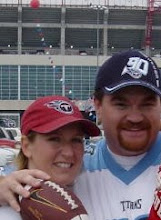
WASHINGTON -- Former Federal Reserve Chairman Alan Greenspan says the odds the U.S. will fall into a recession are "clearly rising" and he believes economic growth is "getting close to stall speed."
Greenspan, who ran the central bank for 18 1/2 years, until early 2006, offered his views on the economy in an interview on NPR News' Morning Edition that will air on Friday. Excerpts of the interview were released on Thursday.
A severe slump in the housing market, a stubborn credit crisis and turbulence on Wall Street are endangering the country's economic health. Growth in the current October through December period is expected to have slowed to a feeble pace of just 1.5 percent, or less.
Economists, including Greenspan, have warned that the chances of a recession are growing.
Asked whether the economy will tip into a recession _ something that has not happened since 2001 _ Greenspan said, "It's too soon to say, but the odds are clearly rising."
He said he felt this way because of the slowing pace of growth. "We are getting close to stall speed," he said. "We are far more vulnerable at levels where growth is so slow than we would be otherwise," he added. "Indeed, it's like someone who has an immune system that's not working very well is subject to all sorts of diseases and the economy at this lever of growth is subject to all sorts of shocks."
Greenspan's remarks come just days after the Federal Reserve, under Chairman Ben Bernanke, sliced a key interest rate for a third time this year to prevent the housing and credit troubles from sinking the economy.
The situation poses the biggest challenge yet to Bernanke since succeeding Greenspan in February 2006.
Some analysts have questioned whether Bernanke waited too long to cut the Fed's key rate and whether he has acted aggressively enough to soothe the economy's woes. The Fed initially dropped its key rate in September, the first reduction in four years. That was followed up by additional rate cuts in late October and then again on Tuesday.
Greenspan again rejected criticism that his policy actions helped to feed a housing boom that eventually went bust. Critics say Greenspan held interest rates too low for too long after the 2001 recession.
To have prevented such euphoria in housing that fed a bubble in prices, Greenspan said the Fed would have had to jack up interest rates so high that it would have damaged the economy. "That would have broken the back of the economy, and brought the housing boom down," Greenspan said.
*from newsmax
Friday, December 14, 2007
Greenspan: Odds Rising for a Recession
Posted by
Ryan Renshaw
at
3:15 PM
![]()
![]()
Subscribe to:
Post Comments (Atom)





No comments:
Post a Comment